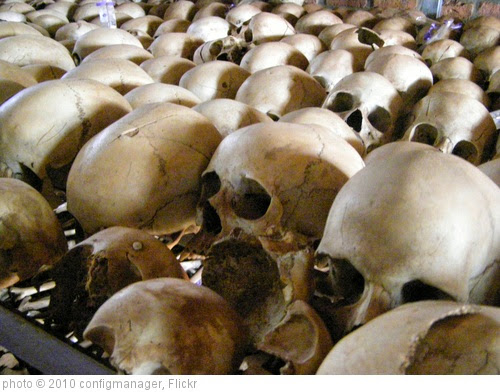Today marks the beginning of the sixteenth anniversary of the 1994 genocide in Rwanda, which killed at least 800,000 people (I’ve since added resources marking its twentieth anniversary).
You might also be interested in:
The Best Web Resources On Darfur
The Best Sites For Learning About The Holocaust
The Best Resources For Learning About Genocide
Here are my choices (a small list for now that will be growing) for The Best Sites To Learn About Genocide In Rwanda — that are accessible to English Language Learners (many are resources developed for the fifteenth anniversary last year):
The BBC has an incredible number of multimedia resources on the Rwandan genocide.
Intended Consequences is an award-winning multimedia presentation on what has happened to 20,000 children (and their mothers) who were conceived by rape during the genocide.
Ghosts of Rwanda is the website of a PBS film.
Students Remember Rwanda Genocide is a new lesson for ELL’s from Breaking News English.
Rwanda Lesson & Writing Prompt
Portraits of Reconciliation is from The New York Times (you might also be interested in Another Good Writing Prompt: Reconciliation.
Following Orders in Rwanda is is also from The NY Times.
A Good Man In Rwanda is from The BBC.
Remembering Rwandans Who Followed Their Conscience is from NPR.
The Rwandan Genocide: 20 years later is a photo gallery from The Boston Globe.
“It’s been 30 years and I am still learning how to forgive.”
On Sunday, Rwanda marked the anniversary of the 1994 genocide that killed some 800,000 people. Our correspondent was in Kigali as survivors discussed and commemorated the events. https://t.co/oGQLXyzRXl
— The New York Times (@nytimes) April 7, 2024
Feedback and suggestions are welcome!
If you found this post useful, you might want to consider subscribing to this blog for free.
You might also want to explore the 400 other “The Best…” lists I’ve compiled.




The memior Left To Tell is also a great source to understand the genocide.
Last month I visited Rwanda with a group from my High School, and the genocide there has almost entirely faded from Rwandans lives. Obviously some people are still hurting and don’t want to remember, but many very openly share their stories and are able to confidently say that it happened 16 years ago, and its not something to dwell upon. Its weird being there and seeing dust covered genocide memorial sites, and realizing that this happened while I was alive.
FOr more information i suggest reading “we wish to inform you that tomorrow we will be killed with our families,” or “shake hands with the devil” which is also a Canadian film.
Thank you for taking interest in such a forgotten and unpublicized part of history.